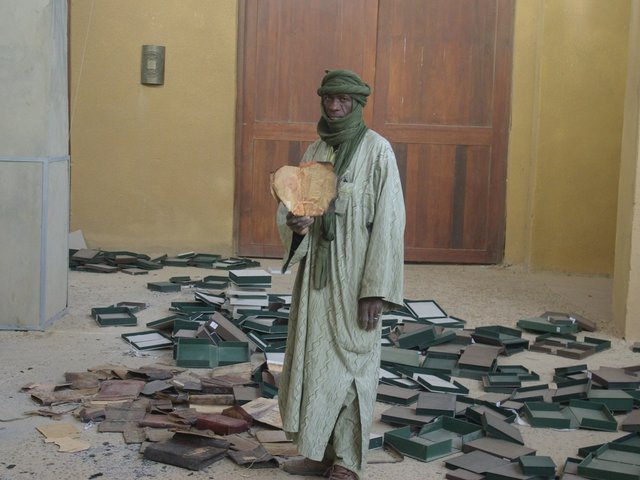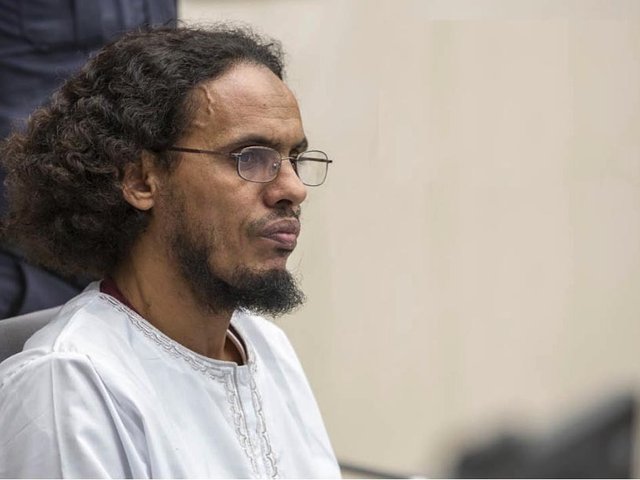Judges at the international criminal court (ICC) in The Hague have sentenced an Islamic extremist to nine years in prison for destroying historic monuments in the ancient city of Timbuktu in northern Mali. In an unprecedented move, Ahmad Al-Faqi Al-Mahdi pleaded guilty to war crimes for ordering the razing of nine mausoleums and the 15th-century Sidi Yahia mosque. The historic verdict marks the first time the ICC has heard a case about the demolition of cultural heritage.
Handing down the sentence, the judges said that Al-Mahdi’s actions were “aimed at breaking the soul of the people of Timbuktu”, adding that, because all but one of the monuments were Unesco World Heritage sites, the attacks “not only affected the faithful and the people of Timbuktu, but also people throughout Mali and the international community”.
Al-Mahdi could have faced up to 30 years in prison, but mitigating circumstances—including his guilty plea, his initial reluctance to destroy the sites and his co-operation with the prosecution—meant this term was reduced. During his two-day trial in August, Al-Mahdi also asked for forgiveness and said he had been swept up in an “evil wave” by Al Qaeda and the Ansar Eddine Islamist groups.
During their occupation of Mali, militants demolished Medieval shrines and tombs of Sufi saints, as well as the Sidi Yahia mosque, which was built in 1440 and contained Prof Sidi Yahia’s mausoleum. The buildings, which formed part of the Unesco World Heritage site dubbed the “city of 333 saints”, were considered blasphemous by the jihadis. Around 4,000 ancient manuscripts were also lost, burned or stolen. Over the past few years, Unesco has rebuilt many of Timbuktu’s mausoleums.
At an earlier hearing, the ICC’s chief prosecutor Fatou Bensouda described the cultural destruction as “tantamount to an assault on people’s history”. She added: “It robs future generations of their landmarks and their heritage. No one who destroys that which embodies the very soul and the roots of a people through such crimes should be allowed to escape justice.”
It is hoped the landmark case will become a deterrent to similar acts of destruction in other countries. Historically, very few warlords have been brought to justice for destroying cultural sites such as Afghanistan’s sixth-century Bamiyan Buddhas, which were blown up by the Taliban in 2001. Politicians and cultural heritage experts have also called on the ICC to investigate Isil’s demolition of the ancient Syrian site of Palmyra.



